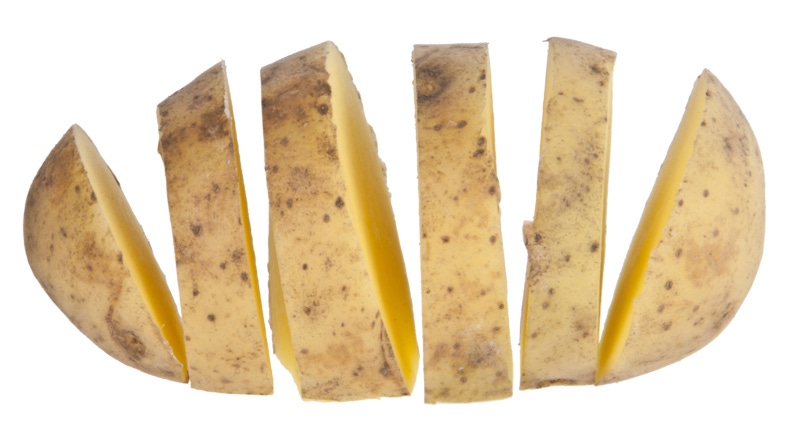Each day at 5 p.m. we collect the five top food and supplement headlines of the day, making it easy for you to catch up on today's most important natural products industry news.
January 11, 2017

These foods aren't genetically modified, but they are 'edited'
New techniques for editing genes—you may have heard of Crispr—are generally not used to add genes from other organisms into plants; rather, they are used to snip or tweak DNA pieces in specific spots, a process that falls outside of the scope of current federal oversight. Gene-edited soybeans and potatoes are already being grown and more crops are in development, like a variety of wheat that's higher in fiber. While countries weigh how to regulate this new wave of modified foods, some scientists say they'll be less scary to consumers, because no genes have actually been added to or removed from the plant. But GMO critics aren't on board and maintain that safety testing needs to be required. Read more at The New York Times...
Is IoT the secret ingredient for tackling food waste?
Two years ago, the largest maker of garbage disposals, Emerson, took steps to address food waste with a service that prepares kitchen scraps to be turned into biogas or fertilizer off-site. Several large corporate sites, including Whole Foods Market, are early adopters. Now the company is building on to the service by partnering with AT&T to use sensors and wireless technology to enable its systems to share data through the internet. That collected data could help clients address what's causing the waste in the first place, plus ensure that collections bins are emptied when they're full. Meanwhile, other companies are working on similar services. WISErg, founded by two former Microsoft engineers, converts food scraps to a liquid that can be used in fertilizer via an oxidative conversion process. Read more at Green Biz...
Folic acid supplements still needed to prevent birth defects
The U.S. Preventive Services Task Force says it still stands by its 2009 recommendation that pregnant women take between 400 and 800 micrograms of folic acid daily to reduce the risk of neural tube defects. Read more at NPR...
People really, really hate Philadelphia's new soda tax
The 1.5-cents-per-ounce sugary beverage tax went into effect at the beginning of the year, and shoppers are feeling it. Some Philly residents say they are shopping outside of the city to avoid the tax. Read more at Time...
Modern agriculture cultivates climate change—we must nurture biodiversity
"A future of continually increasing food supplies and ever more sophisticated manipulation of agro-ecosystems seems to be upon us," write members of the International Panel of Experts on Sustainable Food Systems. But they aren't all helping. Crop yields are plateauing in many areas of the world, and climate is increasingly unstable. What if, instead, we focused on diversifying farms and employing holistic and regenerative techniques? Read more at The Guardian...
You May Also Like


